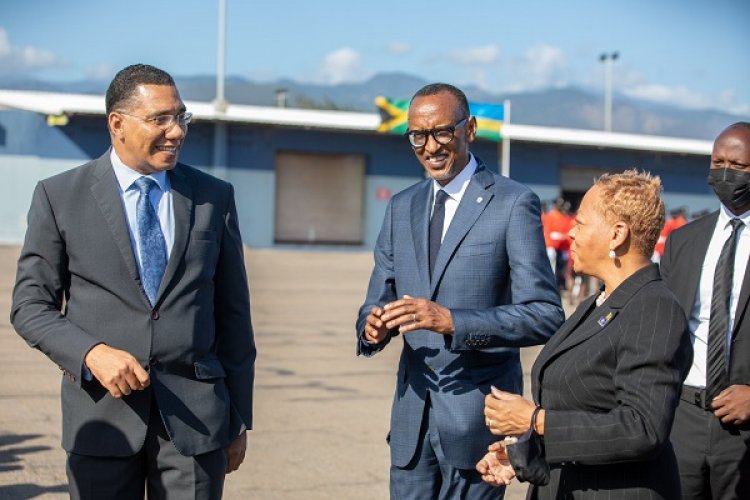Regional
My take on President Kagame’s visit to the Caribbean

Earlier
this month, Rwandan President, Paul Kagame was in the Caribbean Island of
Trinidad and Tobago as a special guest when the Caribbean Community (CARICOM)
marked its 50th anniversary.
Over
the past 50 years, the region established itself as a vibrant regional
integration organization in the developing world.
Kagame attended the
celebration of the 50th anniversary of independence of the
Bahamas on July 10 where he was awarded the Bahamas highest medal of honor in
recognition of his friendship with the government and people of the Bahamas.
My
first impression is that the visit strengthened not only the cooperation for
mutual progress between Rwanda and the Caribbean Islands, but also between the
Island nations with Africa.
Most
residents of the Caribbean trace their ancestry to Africa.
The
visit showcased the determination to forge stronger ties and highlighted the
need for concrete initiatives to address pressing issues affecting both the
African continent and the Caribbean.
By
sharing the experience of Rwanda’s history, Kagame inspired the Caribbean
leaders and people not to focus on the bitter colonial history they experienced
but to build self-confidence and have a sense of ability to overcome their
challenges. He advocated for development
through home grown solutions, without relying on external sources as the core
foundation.
“The history of my country shows that no matter how bad
things are, nothing is beyond repair and there is always a way forward. The
turning point starts with the leaders in the country, and the wider region, at
different levels, coming together to forge a new, unified path. When that
process begins to occur, then external support can be part of the solution,
instead of being part of the problem," Kagame said at the CARICOM 50th
anniversary.
This
part of President Kagame’s speech is the recipe for Rwanda’s rapid progress and
transformation after the 1994 genocide against the Tutsi.
Many
people from the outside world who saw the conditions in Rwanda in 1994 when
almost everything had come to a standstill believed that the country was doomed
to be a failed state that could not get back on its feet with functioning
institutions, social services and public utilities.
Truly,
the turning point of Rwanda’s recovery started with Kagame’s visionary
leadership. He found the appropriate formula to overcome the myriad challenges
that Rwanda faced.
Rwanda’s
path to recovery after the genocide against the Tutsi in 1994, and the progress
registered so far in less than 30 years, is astronomical
and a manifestation that where there is effective
leadership, nothing is beyond repair. President Kagame emphasized the
importance of self-reliance and focusing on what countries can do independently
without waiting for external approval or funding.
He
emphasized the significance of governance and accountability within individual
countries, as well as the strength gained through regional cooperation and
integration.
If leaders and people in other countries show
admiration of what President Kagame stands for, you ask yourself: what about
the Rwandans he leads who have tasted the fruits of his transformational governance?
When Rwandans do not want President Kagame to leave office but request him to
keep leading Rwanda, then you understand why.
It is not because they cannot identify a
replacement.
They only have one worry. Can his replacement
measure up to bring about, accelerated economic progress, unity and security in
the country?
Rwanda is on the right path; succeeding
against odds where many have failed. Instead of gambling with a new leader whose
capabilities have to be put to test, majority Rwandans testify that they need
to keep Kagame whose leadership has produced impressive results.
He is a rare pragmatic leader envied both at
home and abroad.
The rationale Rwandans put forward when calling
for Kagame’s continued leadership of their country is: Do not fix what is not
broken.


